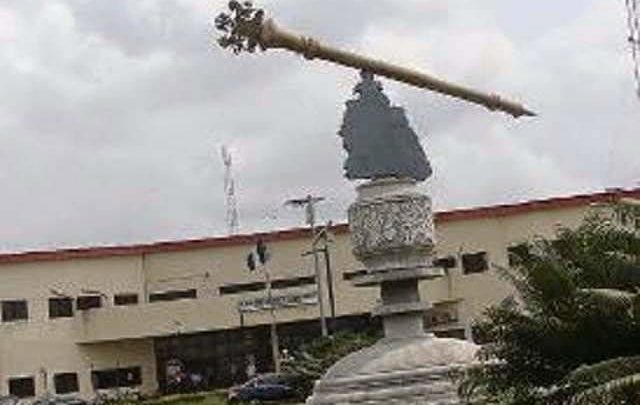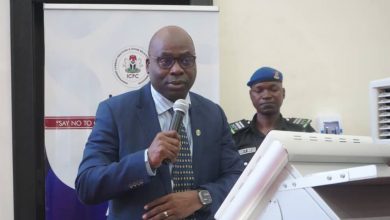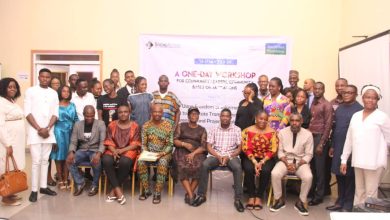
Since the inauguration of the 6th Assembly on 8th of June, 2015, it may not be an aberration to say that the Assembly has arguably grappled to live up to its legislative demands by passing two bills into law out of the 11 bills received.
Nevertheless, as the Assembly is about to kick-start its second legislative year, it will before the eyes of the public either prove or disprove itself to be the People’s Parliament as it often touts itself. This test will clearly be on the Local Government Administration Bill that is currently before the House for consideration.
One could remember that on July 10 when the tenure of Local Government Chairmen expired, the State Governor, Mr. Udom Emmanuel appointed Transition Committee Chairmen to man the administration of Local Government Councils in the 31 Local Government Areas of the State. After six months of their appointment which expired on 12 January 2016, the Akwa Ibom State House of Assembly through a request by the State Governor extended their tenure for another six months with a resolution that the Local Government election should be conducted within the extended period.
Few days to the end of the period, one can see clearly that the LG election is far from being conducted with Governor Udom quoted to have said that there are no funds to conduct the election. To exemplify his stance, the State Governor in a letter read on the floor of the House on June 8, 2016 sought for the amendment of the LG Administration Bill which the 6th Assembly just like requests on Loan approval may not rest until it ensures its speedy passage.
Without trying to preempt the possible decision of the House, It is very imperative for the House to be reminded that the Composition of Local Government Transition Committees or whatever name that may be ascribed to it is entirely illegal and a gesture that murders the very fabric of democratic governance. Thus, any approval given again to this behest by the State Governor will be an outright endorsement on illegality and betrayal of trust on the people’s mandate which they are in custody.
Our lawmakers should be reminded that we are practicing constitutional democracy, and in constitutional democracy, the constitution is the source of power wield by government over people. Under a written constitution as supreme law, government has no more powers than are granted to it, either expressly or impliedly, by the constitution, and any exercise by it of power not so granted to is unconstitutional and void. The above principles are enshrined in the provisions of S. 1(1) and (3) of the C.F.R.N. (as amended) which provides as follows:
This Constitution is supreme and its provisions shall have binding force on the authorities and persons throughout the Federal Republic of Nigeria… If any other law is inconsistent with the provisions of this Constitution, this Constitution shall prevail, and that other law shall, to the extent of the inconsistency, be void.
Thus, unraveling the illegality inherent in the makeup of the Transition Committee, one must understand that the concept of local government in Nigeria is traceable to S. 3(6) of the C.F.R.N. (as amended) which provides that
“there shall be 768 (now 774)Local Government Areas in Nigeria as shown in the second column of Part I of the First Schedule to this Constitution and six area councils as shown in Part II of that Schedule.”
S. 7(1) of the C.F.R.N. (as amended) provides that:
“the system of local government by democratically elected local government councils is under this Constitution guaranteed; and accordingly, the Government of every State shall, subject to section 8 of this Constitution, ensure their existence under a Law which provides for the establishment, structure, composition, finance and functions of such councils.”
Juxtaposing the relevant provisions of the Constitution above stated, and moreespecially considering the meaning of the term ‘guarantee’ as given by the Blacks’Law Dictionary,(i.e. the assurance that a contract or legal act will be performed), the natural meaning to be ascribed to S. 7(1) of the C.F.R.N. (as amended) is that the 774 Local Government Areas created by S. 3(6) of the Constitution shall always be governed by democratically elected leaders. The Constitution pledges itself by giving the assurance that such elections will always be held. To this end, paragraph11 and 12 of Part II of the 2nd Schedule to the Constitution authorizes the legislature (i.e. both the National Assembly and the State Houses of Assembly) to employ the legislative powers conferred on them by S. 4 of the Constitution to make laws towards fulfilling this solemn pledge of always providing, at all times, a democratically elected leadership for the local government councils. This solemn pledge is constitutionally sealed in S. 1(2) of the C.F.R.N. (as amended) which provides that “the Federal Republic of Nigeria shall not be governed, nor shall any persons or group of persons take control of the Government of Nigeria or any part thereof, except in accordance with the provisions of this Constitution.”
Indeed, the legislative powers provided for under S. 4 of the Constitution is not a blanket power but is strictly to be applied towards attaining constitutional objectives, in view of the rule that the legislature has no inherent powers, to make laws outside the clear provisions of the Constitution.
Therefore, any attempt by our State legislature as headed by a Barrister which is believed to be very acquainted with these provisions to employ the powers conferred on it under S. 4 of the Constitution to make a law that will under any circumstance permit the local government councils to be governed otherwise than by democratically elected leaders will be inconsistent with S. 7(1) of the Constitution and to that extent void.
Here, the already tasteless excuse that there are no funds to conduct Local Government Election does not hold water, because one is tempted to wonder why such funds are not always lacking when it comes to other elections. Anyone could simply discern that the problem revolves around lack of premium given to the Local Government administration which if its importance was appreciated, would have necessitated adequate planning for the election to be held. Of course we don’t want to believe the fears of some Akwa Ibom persons that the governor is stalling the election of democratically elected Chairmen so that he can freely temper with Local Government funds as those he appointed will be left with a Hobson’s Choice but to bow to demands of their benefactor. Besides, without sounding pessimistic, how are we sure that the economy of the State will not continue to dwindle? With a year already gone and probably six more months requested to be extended, does this suggest that when the democratically elected council Chairmen finally come on board they will spend less than two years in office? How effectively then will they be able to execute their plans for grassroots governance?
Yes, our State Lawmakers had goofed by not playing their oversight role when they allowed Transition Committee Chairmen to be constituted at first. They goofed again by ignoring the provisions of the constitution which overrides whims and caprices of anyone thus give nod for the extension of their stay.
As they are about considering the governor’s request to amend the Local Government Administration Bill, it is important they remember that Akwa Ibom people and the world at large are not apathetic towards the happenings in the State Hallowed Chambers, rather they should reflect on the squalid image the 5th Assembly had when they ignored the disapproval of the people to pass the Scandalous Pension Bill. This we want to believe is far from the desire of the 6th Assembly.
Hence, before the Sixth Assembly goofs again, they must take cognizance of the fact that the Nigerian State is built on the principle of constitutional democracy, one of the postulates of which is the doctrine of constitutional supremacy. All persons, be it the governor of the State or the State Lawmakers must kowtow in obeisance to the dictates of the constitution. And since the Constitution does not recognize the concept of Local Government Transition committees, a call is hereby made for the immediate dissolution of such illegal body.
Moreover, it is imperative for our State House of Assembly to refrain from exercising its law-making powers in a manner inconsistent with the Constitution, considering the obvious fact that the principle of legislative supremacy is unknown to the Nigerian Legal System. Of course when this is done, impunity, arbitrariness and anarchy will be far off from our State and each member of the 6th Assembly will beat their chest candidly with a resounding voice in their heart saying “ Truly, we are the People’s Parliament. Truly, we have lived up to our responsibility”.




